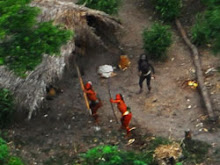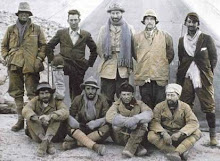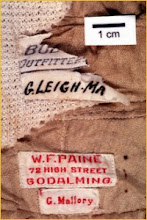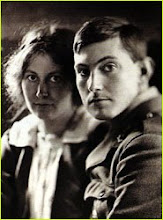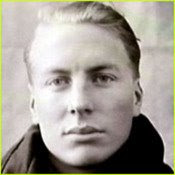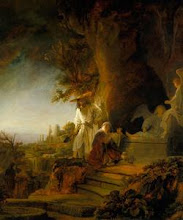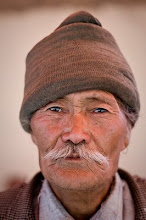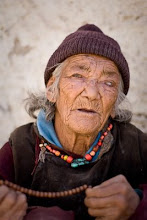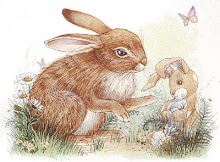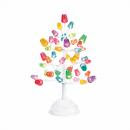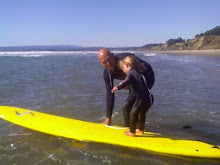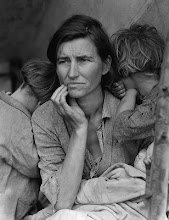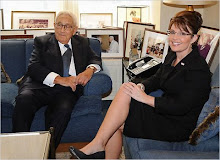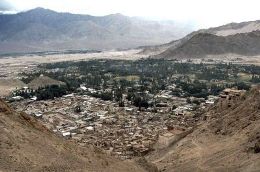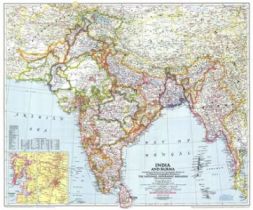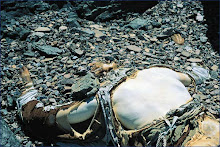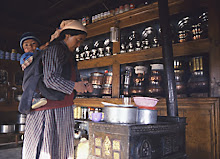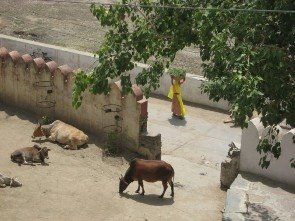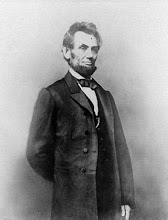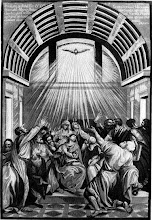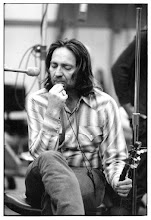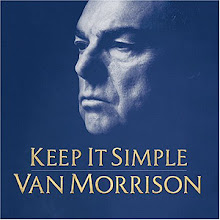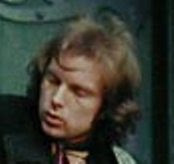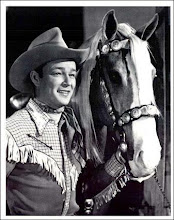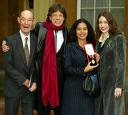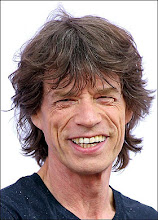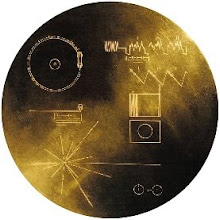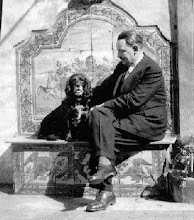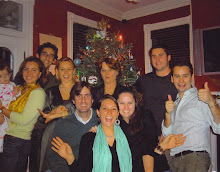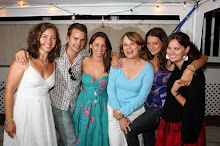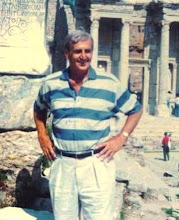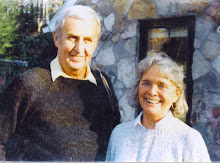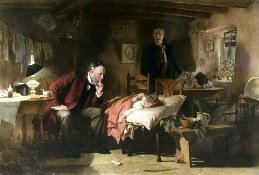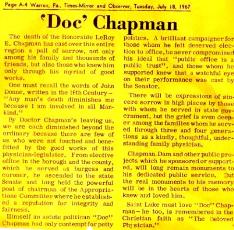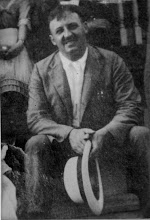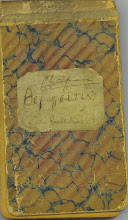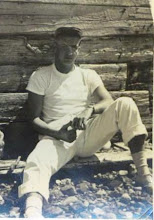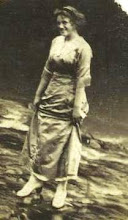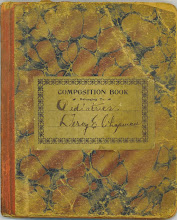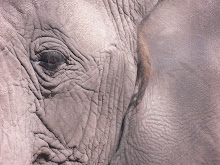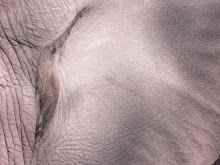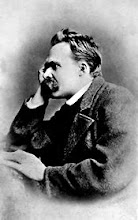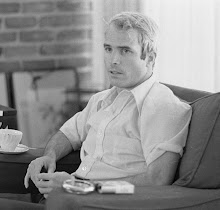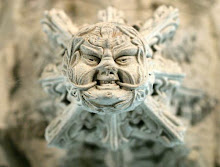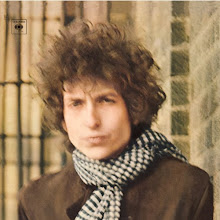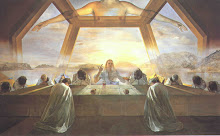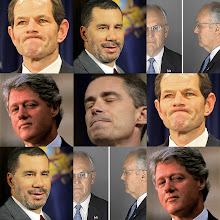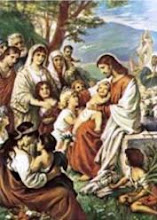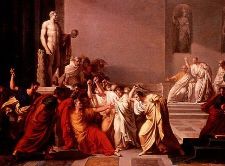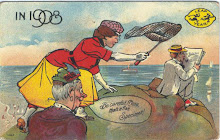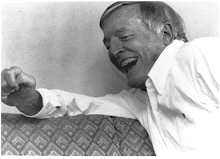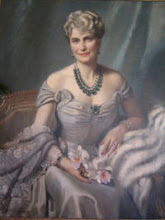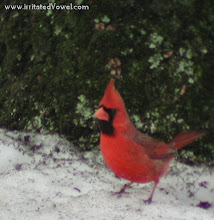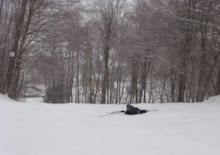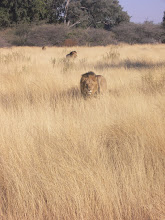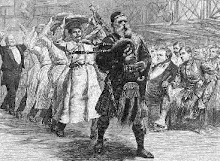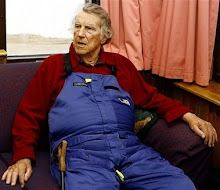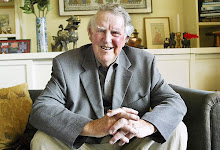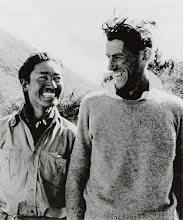The Love Song of Alfreda Prufrock-
Let us go then, you and I,
When the evening is spread out against the sky
Like a patient etherised upon a table;
Let us go, through certain half-deserted streets,
The muttering retreats
Of restless nights in one-night cheap hotels
And sawdust restaurants with oyster-shells:
Streets that follow like a tedious argument
Of insidious intent
To lead you to an overwhelming question …
Oh, do not ask, “What is it?”
Let us go and make our visit.
In the room the gentlemen come and go
Talking of Michelangelo.
The yellow fog that rubs its back upon the window-panes,
The yellow smoke that rubs its muzzle on the window-panes
Licked its tongue into the corners of the evening,
Lingered upon the pools that stand in drains,
Let fall upon its back the soot that falls from chimneys,
Slipped by the terrace, made a sudden leap,
And seeing that it was a soft October night,
Curled once about the house, and fell asleep.
And indeed there will be time
For the yellow smoke that slides along the street,
Rubbing its back upon the window-panes;
There will be time, there will be time
To prepare a face to meet the faces that you meet;
There will be time to murder and create,
And time for all the works and days of hands
That lift and drop a question on your plate;
Time for you and time for me,
And time yet for a hundred indecisions,
And for a hundred visions and revisions,
Before the taking of a toast and tea.
In the room the sweet men come and go
Talking of Michelangelo.
And indeed there will be time
To wonder, “Do I dare?” and, “Do I dare?”
Time to turn back and descend the stair,
With my chin held high, color in my hair—
[They will say: “How that girl is growing thin!”]
My best black coat, my collar mounting firmly to the chin,
My neck scarf rich and modest, but asserted by a simple pin—
[They will say: “But how her arms and legs are thin!”]
Do I dare
Disturb the universe?
In a minute there is time
For decisions and revisions which a minute will reverse.
For I have known them all already, known them all:—
Have known the evenings, mornings, afternoons,
I have measured out my life with coffee spoons;
I know the voices dying with a dying fall
Beneath the music from a farther room.
So how should I presume?
And I have known the eyes already, known them all—
The eyes that fix you in a formulated phrase,
And when I am formulated, sprawling on a pin,
When I am pinned and wriggling on the wall,
Then how should I begin
To spit out all the butt-ends of my days and ways?
And how should I presume?
And I have known the arms already, known them all—
Arms that are muscled and tan and bare
[And in the lamplight, slung strong behind my chair!]
Is it remembering men getting dressed
That makes me so digress?
Arms that reach across the table, or help me wrap my shawl.
And should I then presume?
And how should I begin?
. . . . .
Shall I say, I have gone at dusk through narrow streets
And watched the steam that rises from the pots
Of lonely women's soups, drifting fragrant out of windows?…
I should have been a pair of ragged claws
Scuttling across the floors of silent seas.
. . . . .
And the afternoon, the evening, sleeps so peacefully!
Smoothed by strong fingers,
Asleep … tired … or it malingers,
Stretched on the floor, here beside you and me.
Should I, after tea and cakes and ices,
Have the strength to force the moment to its crisis?
But though I have wept and fasted, wept and prayed,
Though I have seen my head [a head grown old] brought in upon a platter,
I am no prophetess—and here’s no great matter;
I have seen the moment of my greatness flicker,
And I have seen the eternal Footman hold my coat, and snicker,
And in short, I was afraid.
And would it have been worth it, after all,
After the cups, the marmalade, the tea,
Among the porcelain, among some talk of you and me,
Would it have been worth while,
To have bitten off the matter with a smile,
To have squeezed the universe into a ball
To roll it toward some overwhelming question,
To say: “I am a goddess, come from the dead,
Come back to tell you all, I shall tell you all”—
If one, settling a pillow by his head,
Should say: “That is not what I meant at all.
That is not it, at all.”
And would it have been worth it, after all,
Would it have been worth while,
After the sunsets and the dooryards and the sprinkled streets,
After the novels, after the teacups, after our skirts that trailed along the floor—
And this, and so much more?—
It is impossible to say just what I mean!
But as if a magic lantern threw the nerves in patterns on a screen:
Would it have been worth while
If one, settling a pillow or throwing off a shawl,
And turning toward the window, should say:
“That is not it at all,
That is not what I meant, at all.”
. . . . .
No! I am neither prophetess nor queen, nor was meant to be;
Am an attendant lady, one that will do
To swell a progress, start a scene or two,
Advise the queen; no doubt, an easy tool,
Deferential, glad to be of use,
Politic, cautious, and meticulous;
Full of high sentence, but a bit obtuse;
At times, indeed, almost ridiculous—
Almost, at times, the Fool.
I grow old … I grow old …
I shall wear the tops of my stockings rolled.
Shall I pull my hair behind? Do I dare to eat a peach?
I shall wear white linen pants, and walk upon the beach.
I have heard the seagods singing, each to each.
I do not think that they will sing to me.
I have seen the sea-gods riding seaward on the waves
Stirring the white peaks of the waves blown back
When the wind blows the water white and black.
We have lingered in the chambers of the sea
By sea-gods wreathed with seaweed red and brown
Till human voices wake us, and we drown
~~~~~~~~~~~~
With my apologies to the purists - TC
Wednesday, April 29, 2009
Saturday, April 25, 2009
Remembering 1918 influenza, and the 1976 swine flu shot, hoping for immunity
I have tried to explain to my kids that I am old enough to remember hearing stories from people who survived the 1918 pandemic influenza that killed FIFTY MILLION people worldwide. My mother's brother died as an infant then. My mother hadn't been born yet, but two older brothers had contracted the virus. Doctor Jacquish came and tended to the family through long winter's nights. He finally had to ask my grandmother to choose between two sons, the infant or the four-year old, because he had to work continuously to keep either child breathing, siphoning off fluids etc,...and couldn't tend to both. My brokenhearted grandmother had to make her choice, and she chose the four year old because, she said, she knew him better, and he knew life better. In her eyes, the baby would be welcomed back and restored to health by the angels he had so recently left. And so it was.
Noone knows what lies ahead. People don't want to hear, and can't believe, that such long winter's nights as my grandmother's could happen again, to them. I'm scared. I have listened for years to old scientists predicting with fearful confidence that another pandemic is coming. I hope this isn't it. But there's hope. I was vaccinated reluctantly in 1976 against a swine flu, along with about 25% of the U.S. population. That turned out to be a fiasco, which caused Guillaine- Barre syndrome in some people, against an outbreak that never materialized. My father, the doctor who gave the shot to my mother, my sister and me in our living room, always said those who developed that syndrome were hypochondriacs, though I swear I was never the same after that shot. But I've decided, using my ever-active-imagination, that maybe there's an upside.
Here's hoping that it's not illogical to think that that controversial immunization may have provided some protection to those who received it, and, through subsequent pregnancies and lactation, to children who are now young adults in the at-risk age group. Since I have five children in that demographic, I'm going with that.
Noone knows what lies ahead. People don't want to hear, and can't believe, that such long winter's nights as my grandmother's could happen again, to them. I'm scared. I have listened for years to old scientists predicting with fearful confidence that another pandemic is coming. I hope this isn't it. But there's hope. I was vaccinated reluctantly in 1976 against a swine flu, along with about 25% of the U.S. population. That turned out to be a fiasco, which caused Guillaine- Barre syndrome in some people, against an outbreak that never materialized. My father, the doctor who gave the shot to my mother, my sister and me in our living room, always said those who developed that syndrome were hypochondriacs, though I swear I was never the same after that shot. But I've decided, using my ever-active-imagination, that maybe there's an upside.
Here's hoping that it's not illogical to think that that controversial immunization may have provided some protection to those who received it, and, through subsequent pregnancies and lactation, to children who are now young adults in the at-risk age group. Since I have five children in that demographic, I'm going with that.
Thursday, April 23, 2009
Measuring out Life With Coffee Spoons, at last
I do understand so well
Now that I've lived through many moons
What TS Eliot meant by
life measured out in coffee spoons.
Each morning when I stumble downstairs
And barely have strength to move
I know that the coffee will help
And I measure that stuff with love.
Some days the filter’s still full
With the grounds of the day before
So I grumble and moan and rinse
And fill the gruesome filter once more
I measure generously with a spoon
That I have had for thirty years
I know just how to fill it and hold a high hump
No other spoon soothes my fears
that I won't have strong coffee
That I’m really alive
That I’ve slept through another night -
And risen again to go out and work:
It generally works out right.
Usually I remember to clean out the filter
And dry it the day before.
And, as I’ve said,
Sometimes I forget.
I’ll do this forevermore.
But how many more times?
And how many more spoonfuls
Of coffee will I measure out?
How many more cans
of Folgers Columbian
will I slobber into my snout?
My coffee and me
We’ll never part
I’ll never subdue to tea.
I’ll measure and filter and whimper til death
Yeah, T.S. Eliot and me.
Now that I've lived through many moons
What TS Eliot meant by
life measured out in coffee spoons.
Each morning when I stumble downstairs
And barely have strength to move
I know that the coffee will help
And I measure that stuff with love.
Some days the filter’s still full
With the grounds of the day before
So I grumble and moan and rinse
And fill the gruesome filter once more
I measure generously with a spoon
That I have had for thirty years
I know just how to fill it and hold a high hump
No other spoon soothes my fears
that I won't have strong coffee
That I’m really alive
That I’ve slept through another night -
And risen again to go out and work:
It generally works out right.
Usually I remember to clean out the filter
And dry it the day before.
And, as I’ve said,
Sometimes I forget.
I’ll do this forevermore.
But how many more times?
And how many more spoonfuls
Of coffee will I measure out?
How many more cans
of Folgers Columbian
will I slobber into my snout?
My coffee and me
We’ll never part
I’ll never subdue to tea.
I’ll measure and filter and whimper til death
Yeah, T.S. Eliot and me.
"Fifty Years Seems But A Day"
I just can't begin to imagine
how the folks in the world
got so young.
It was only a quarter to seven
when I myself turned twenty-one.
But that clock is in some clock heaven
a gold watch my father gave me -
It was, (Lord!) nineteen-sixty-seven
when he made me that great martini.
And then there's a blur
and a swishing of years
and I swear that it didn't take long
To watch the world age
and decay and implode,
dragging little young me along.
I remember my grandma said once in the sun
as she brushed hair long since gone gray:
"When I think of my youth and my mother and friends,
Fifty years seems but a day."
how the folks in the world
got so young.
It was only a quarter to seven
when I myself turned twenty-one.
But that clock is in some clock heaven
a gold watch my father gave me -
It was, (Lord!) nineteen-sixty-seven
when he made me that great martini.
And then there's a blur
and a swishing of years
and I swear that it didn't take long
To watch the world age
and decay and implode,
dragging little young me along.
I remember my grandma said once in the sun
as she brushed hair long since gone gray:
"When I think of my youth and my mother and friends,
Fifty years seems but a day."
Thursday, April 2, 2009
Wednesday, April 1, 2009
Equilibrium, Life is Good: To Hell with Murphy's Law
I'm not so sure that when all is said and done, I'd be proud to be the person who created Murphy's Law.I mean you would have to be young hot and glamorously cynical to come up with stuff like that. Sure, all that stuff is true some of the time: "Anything that can go wrong will go wrong." "Enough research will tend to support your theory". So who doesn't know that riff already? Who doesn't know that, sometimes at least, life seems that way? Only someone who hasn't been around the block much, or at least, read much research. But when you grow old, and your life is fading away - you were smart enough to have been cynical and flip at times- and, looking back, you know you could have have done better. So is something like "Murphy's Law" really the imprimatur you'd want to leave behind?
I'd much rather be the person who created a theory that gave people hope. Even old Mr. Murphy, on his deathbed, must have thought: "I was smart. I could have come up with something a little better, a little more helpful to all those who will come after me. I wish I would have used my wits, and become famous for saying something like "All sentient beings seek equiibrium." "True equilibrium is finally achieved only in death." Or better yet,"All things are possible if you will only believe."
I'd much rather be the person who created a theory that gave people hope. Even old Mr. Murphy, on his deathbed, must have thought: "I was smart. I could have come up with something a little better, a little more helpful to all those who will come after me. I wish I would have used my wits, and become famous for saying something like "All sentient beings seek equiibrium." "True equilibrium is finally achieved only in death." Or better yet,"All things are possible if you will only believe."
Subscribe to:
Posts (Atom)


